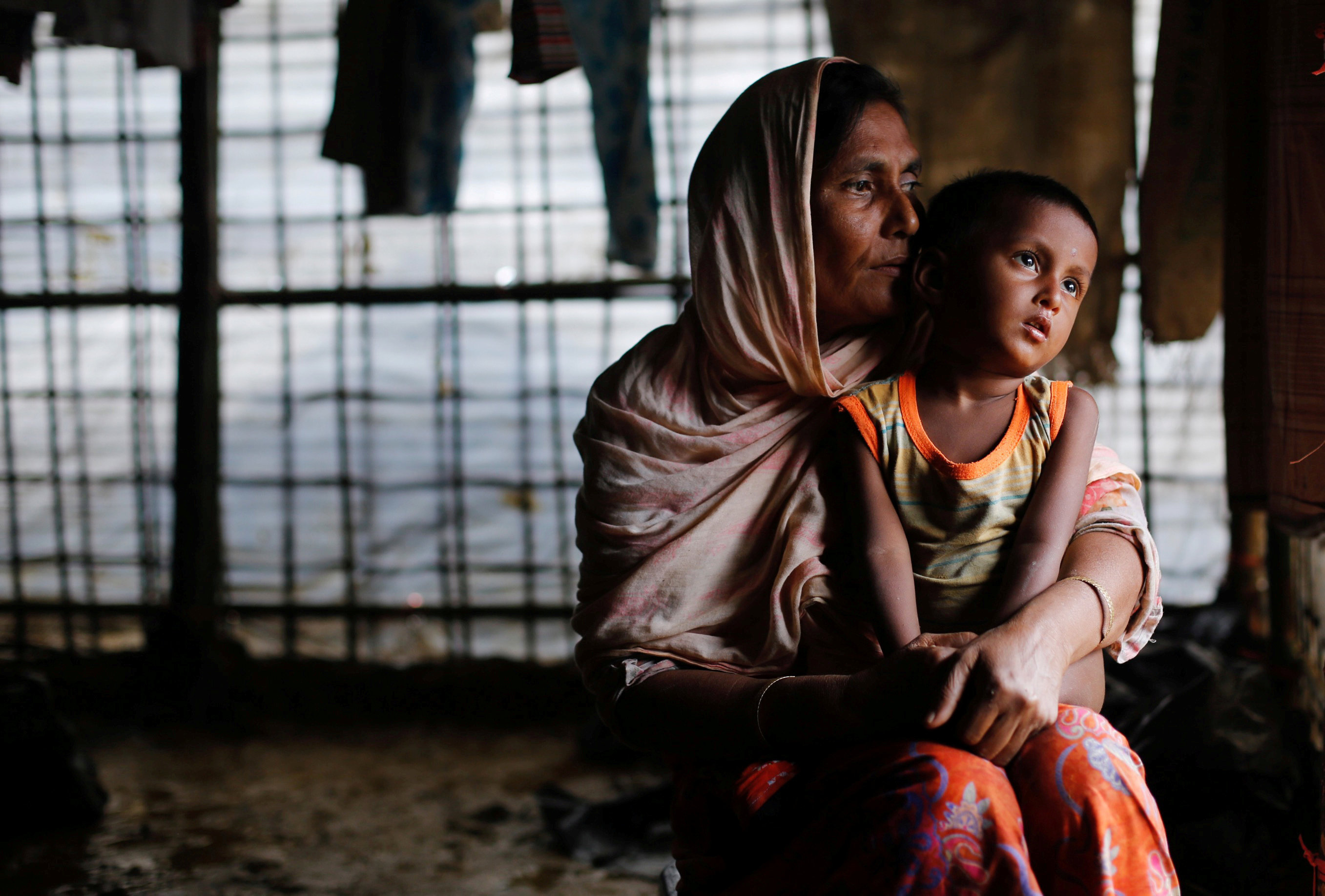
A Rohingya refugee woman waits for aid with her grandson inside their temporary shelter Sept. 19 at a camp in Cox's Bazar, Bangladesh. (CNS/Reuters/Danish Siddiqui)
The president of Bangladesh's Catholic bishops' conference has praised his country's openness to accept hundreds of thousands of Rohingya Muslims escaping neighboring Myanmar and has called Myanmar's treatment of the religious minority a "crime against humanity."
In a Sept. 20 statement, Dhaka, Bangladesh Cardinal Patrick D'Rozario said the Rohingya are fleeing Myanmar "without much dreams or hopes for [the] future, except only to save their lives."
"Bangladesh is doing what she can; from out of her poverty she is sharing her richness of human values, the treasure of our culture," said D'Rozario, who has led his archdiocese since 2011 and was made a cardinal by Pope Francis in November 2016.
Bangladesh, which shares a land border with Myanmar on the coast of the Bay of Bengal, has accepted some 800,000 Rohingya escaping Myanmar's Rhakine state. Myanmar considers the Rohingya to be illegal immigrants from Bangladesh, despite the fact that many have lived in Myanmar for decades.
Human Rights Watch released satellite photos Sept. 2 that appeared to indicate that entire villages of Rohingya have been burned to the ground in Myanmar, which is about 90 percent Buddhist.
D'Rozario said in his statement that Catholic aid groups in Bangladesh are "waiting with urgency" to receive approval from Myanmar authorities "to quickly go to the area to stand at the side of the victims and respond."
"In this present situation let charity be the first and foremost concern," the cardinal asked. "Let all of us, including the Church, be a hospital at the battlefield, urgently responding to urgent needs. Immediate charity is what is needed most."
Myanmar's de facto leader, Nobel Peace Prize laureate Aung San Suu Kyi, has faced sharped criticism for her reluctance to respond to the treatment of the Rohingya. In a Sept. 18 speech on the issue she refused to criticize the country's military, which has been accused of a crafting a brutal campaign to pressure the Rohingya to leave.
Advertisement
Myanmar began a process of reforms in 2015 to emerge from a half-century of military rule. Suu Kyi, who had been put on house arrest under the military leadership, was elected the country's State Counselor, a role equivalent to prime minister, in April 2016.
Francis has sought to help the Myanmar leader in her efforts to bring democracy to the country. After a meeting at the Vatican between the two leaders in May, Myanmar and the Holy See established full diplomatic relations for the first time.
The pope is scheduled to visit both Bangladesh and Myanmar from Nov. 27-Dec. 2.
[Joshua J. McElwee is NCR Vatican correspondent. His email address is jmcelwee@ncronline.org. Follow him on Twitter: @joshjmac.]





